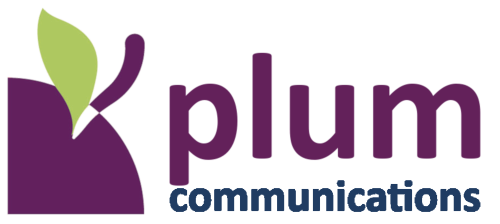The Best Tech Tools for Small Businesses
Running a small business today means wearing many hats: sales, marketing, customer service, operations, and more. Fortunately, technology has levelled the playing field, giving small businesses access to powerful tools that were once reserved for large enterprises. The right tech stack can help you streamline operations, improve customer experience, and grow your business faster and smarter.
At Plum Communications, we work with small businesses every day to help them get the most out of their technology. Here’s our guide to the best tech tools every small business should consider, and why they matter.
1. Cloud-Based Phone Systems (VoIP)
Communication is the lifeblood of any business. If you’re still using traditional phone lines, it might be time to upgrade to a cloud-based phone system. VoIP (Voice over Internet Protocol) allows you to make and receive calls over the internet, offering:
• Lower costs
• Remote access from any device
• Advanced features like voicemail-to-email, call routing, and CRM integration
With remote and hybrid work becoming the norm, VoIP ensures your team stays connected wherever they are. Plum Communications offers tailored VoIP solutions designed specifically for small businesses.
2. Project Management Platforms
Keeping track of tasks, deadlines, and team responsibilities can be overwhelming. Project management tools like Trello, Asana, or Monday.com help you organise workflows, assign tasks, and monitor progress, all in one place.
These platforms are especially useful for teams working remotely or across multiple locations. They improve accountability and ensure nothing falls through the cracks.
3. Cloud Storage and Collaboration
Gone are the days of emailing files back and forth. Tools like Google Workspace and Microsoft 365 allow teams to collaborate in real time, share documents securely, and access files from anywhere.
Features like shared calendars, video conferencing, and integrated chat make these platforms essential for modern business operations. Plus, they scale easily as your team grows.
4. Accounting and Finance Software
Managing finances manually is time-consuming and error-prone. Cloud-based accounting tools like Xero, QuickBooks, and FreeAgent simplify bookkeeping, invoicing, payroll, and tax preparation.
These platforms offer real-time insights into your cash flow and financial health, helping you make smarter decisions and stay compliant with HMRC regulations.
5. Customer Relationship Management (CRM)
A CRM system helps you manage customer interactions, track leads, and nurture relationships. Tools like HubSpot, Zoho CRM, and Salesforce Essentials are designed with small businesses in mind.
They centralise customer data, automate follow-ups, and provide valuable insights into your sales pipeline. A good CRM can dramatically improve customer retention and conversion rates.
6. Cybersecurity Solutions
Small businesses are increasingly targeted by cyber threats. Protecting your data, devices, and communications is critical. Invest in:
• Antivirus software (e.g., Bitdefender, Norton)
• Password managers (e.g., LastPass, 1Password)
• Firewalls and VPNs for secure remote access
Plum Communications can help assess your current security setup and recommend solutions that fit your budget and risk profile.
7. Marketing Automation Tools
Marketing is essential—but it doesn’t have to be manual. Platforms like Mailchimp, Constant Contact, and ActiveCampaign allow you to automate email campaigns, segment audiences, and track engagement.
Social media scheduling tools like Buffer or Hootsuite help you maintain a consistent online presence without spending hours each week posting manually.
8. E-Commerce and Online Booking Platforms
If you sell products or services online, platforms like Shopify, Squarespace, or WooCommerce make it easy to set up and manage your store. For service-based businesses, tools like Calendly, Acuity Scheduling, or Booksy streamline appointment booking and reduce no-shows.
These platforms integrate with payment gateways, CRMs, and marketing tools to create a seamless customer experience.
9. Business Broadband and Networking Equipment
All these tools rely on one thing: a fast, reliable internet connection. Consumer-grade broadband and routers often fall short when multiple users and devices are online.
Plum Communications offers business-grade broadband, Wi-Fi solutions, and network infrastructure assessments to ensure your tech tools run smoothly. We also provide failover options to keep you online during outages.
10. Analytics and Reporting Tools
Understanding your data is key to growth. Tools like Google Analytics, Power BI, and Tableau help you track website traffic, customer behaviour, and business performance.
These insights allow you to make informed decisions, optimise marketing efforts, and identify new opportunities.
Final Thoughts
Technology is no longer a luxury—it’s a necessity for small businesses looking to compete, grow, and thrive. The right tools can save time, reduce costs, and improve customer satisfaction. But choosing the right tech stack isn’t just about features—it’s about finding solutions that align with your goals, team size, and budget.
At Plum Communications, we’re here to help you navigate the options and build a tech ecosystem that works for your business. From connectivity and VoIP to cybersecurity and cloud solutions, we offer expert advice and hands-on support tailored to your needs.
Ready to upgrade your tech toolkit?
Contact Plum Communications today for a free consultation and discover how the right tools can transform your business.

